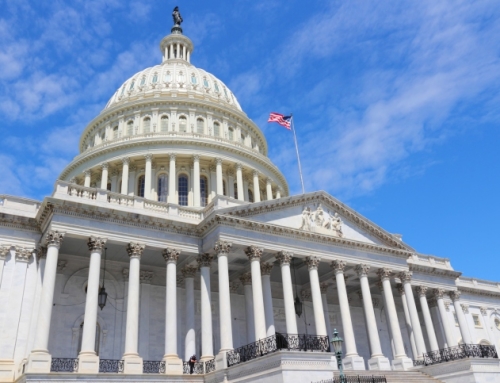Since the onset of the pandemic, many of the world’s workers have been working remotely. Now, nearly two years later, many are returning to the workplace. But governments around the world continue to develop strategies and regulations to fight rising cases and to alleviate risks with on-site work.
Some countries have implemented a safe return to the workplace by introducing workplace vaccination rules. For example, workers in Singapore will be barred from their workplaces unless they get vaccinated or show proof of a negative test.
However, many of these regulations have been seen as controversial and some planned regulations have been met with resistance.
In the US, for example, the Supreme Court blocked President Joe Biden’s workplace vaccine mandate, which would have required all private employers with 100 or more employees to ensure their workers were vaccinated against Covid-19 or tested weekly and required to wear a mask at work. A recent appeals court also declined to reinstate federal employee vaccine mandates. However, the administration has found some success in imposing a mandate that requires all healthcare workers to get at least a first vaccine dose by Jan. 27 and a second dose by Feb. 28.
Similar laws requiring healthcare workers to get vaccinated against Covid-19 are more common. In countries such a Hungary, Covid-19 vaccinations are mandatory for certain healthcare workers and government workers.
And in England, the government had implemented a mandate for care workers and was set to extend this mandate for health and social care workers; however a consultation on the cancellation of the mandate has recently launched. Scotland and Wales have no such mandates for healthcare workers while a consultation is planned for Northern Ireland.
Vaccines for All
Some countries are taking a larger view and requiring Covid vaccines for their entire populations, not just those in the workforce. Austria recently became the first country in Europe to introduce a mandate for all adults to get vaccinated against Covid-19. The mandate was introduced to combat the surge in omicron cases and, according to the Health Minister, to help protect from future waves and variants.
While other countries across Europe have also implemented new vaccine mandates for different age groups and professions, Austria appears to be the only country in Europe to impose compulsory vaccines. However, Germany has debated making vaccines mandatory.
Across Asia Pacific, a number of countries have also imposed mandates for all adults including Indonesia, Turkmenistan, Micronesia and Tajikistan.
Other countries, however, have abandoned plans to impose mandatory vaccines. In the Czech Republic, the government scrapped plans to make Covid-19 vaccinations mandatory for key professionals and people over the age of 60 to avoid “deepening fissures” in society.
In the UK, there are currently no plans to impose a mandatory vaccine in the workplace or mandatory vaccines for age groups.
“It’s unclear whether the [UK] government would look to introduce mandatory Covid-19 vaccinations further than in healthcare settings,” says Rachel Suff, senior policy adviser for employment relations at the Chartered Institute of Personnel and Development. “For employers, the focus should be on providing encouragement and education about the benefits of vaccination by signposting people to official information. There will be a small minority of people who don’t get the vaccine either because they can’t for medical reasons or choose not to for other reasons, and employers must be careful not to stigmatize or discriminate against them.”
With different regulations surrounding Covid-19 vaccine mandates across the globe, contingent workforce managers have the challenge of ensuring their workforce will abide by the country’s laws.
Here’s a roundup of countries with vaccine mandates, listed by groups.
By Age
- Austria: All adults
- Costa Rica: All persons over the age of 5
- Ecuador: All persons over the age of 5
- Greece: Adults over 60
- Indonesia: All adults
- Italy: Adults over 50
- Malaysia: Adults over 60
- Micronesia: All adults
- Russia: Certain regions are requiring adults over 60 to be vaccinated
- Tajikistan: All adults
- Tunisia: Covid-19 passes are required for citizens and visitors
- Turkmenistan: All adults
Work Groups
- Australia: All states and territories have mandated Covid-19 vaccination in residential aged care. Certain states have different mandates for other sectors.
- Canada: Employees in all federally regulated workplaces to be vaccinated against Covid-19.
- China: Certain workers are required to be vaccinated.
- Croatia: Healthcare and social care workers are required to be vaccinated.
- Egypt: Government workers must be vaccinated or take a weekly test.
- Fiji: Civil servants and private-sector employees must be vaccinated.
- France: Covid-19 vaccinations are mandatory for healthcare workers.
- Finland: Government recently approved a bill to make vaccinations mandatory for social and healthcare personnel.
- Germany: Germany’s top court recently refused to temporarily halt a Covid-19 vaccine mandate for healthcare workers. The mandate is due to take effect in March.
- Ghana: The government has made it mandatory for all civil servants, including health workers, security personnel, and teachers, to get vaccinated against Covid-19.
- Greece: Covid-19 vaccinations are mandatory for healthcare workers.
- Hungary: the government has made it mandatory for healthcare workers to get vaccinated as well as state institutions. Private firms are also allowed to decide whether workers must be vaccinated or not.
- Italy: Vaccines are mandatory for healthcare workers. Those working in Italy’s schools, police, military or emergency services must be vaccinated against Covid-19.
- Kazakhstan: The government has introduced mandatory Covid-19 vaccination or weekly testing for people working in groups of more than 20.
- Latvia: Employers are allowed to dismiss workers who are unvaccinated.
- Lebanon: Vaccination is mandatory for workers in certain sectors.
- Malaysia: Federal government employees must be vaccinated.
- Morocco: The government has implemented a mandatory vaccination pass in order to access both public and private administrations.
- New Zealand: Workers in certain sectors such as health, education and police must be vaccinated.
- Oman: Oman has mandated that employees in the public or private sectors must be fully vaccinated to enter their workplace.
- Panama: Civil servants required to be vaccinated.
- Philippines: On-site workers and workers for certain sectors.
- Poland: The government plans to introduce mandatory vaccinations by March 1 for teachers, medical workers and uniformed security workers.
- Russia: Certain regions have introduced mandates for certain workers to be vaccinated.
- Saudi Arabia: If an employee is not vaccinated against Covid-19, recovered, or exempt, the employer must require the employee to work remotely.
- Turkey: Certain employees such as teachers and domestic travel employees are required to be vaccinated or show proof of a negative test.
- Singapore: Fully vaccinated employees can return to the workplace.
- Ukraine: Some public sector employees are required to be vaccinated while plans to expand to healthcare workers is under consideration.
- United Kingdom: The government launched a consultation ending vaccination as condition of deployment in health and all social care settings in England.
- United States: Healthcare workers in states that had been challenging the mandate must be fully vaccinated by Feb. 28.
- Vatican City: All employees must be vaccinated.
- Zimbabwe: Civil servants must be vaccinated.









